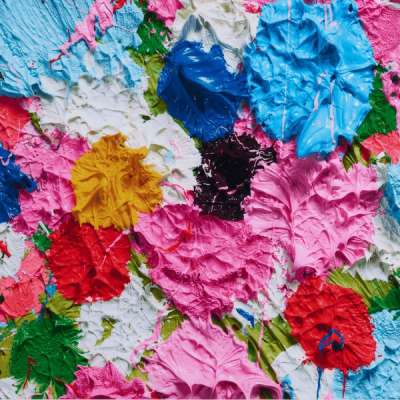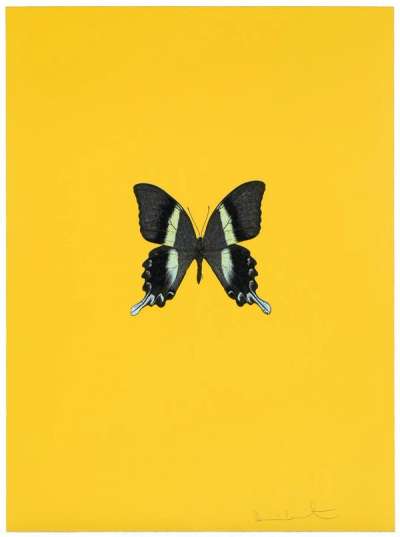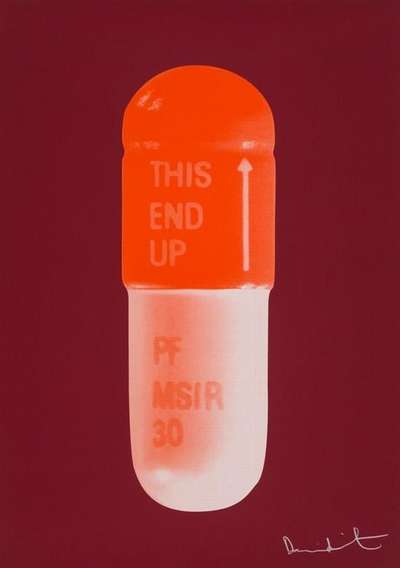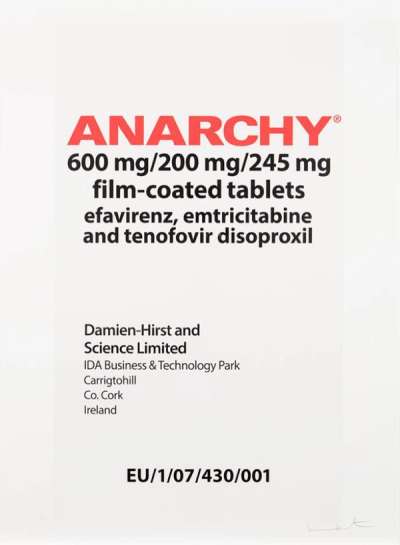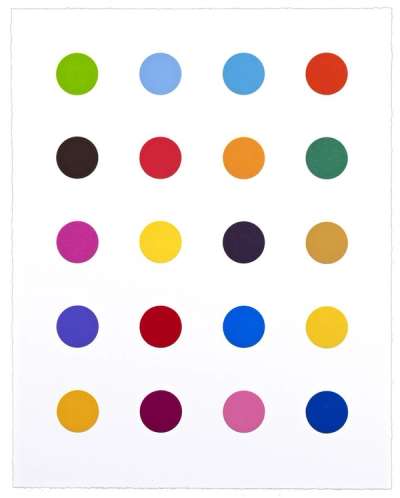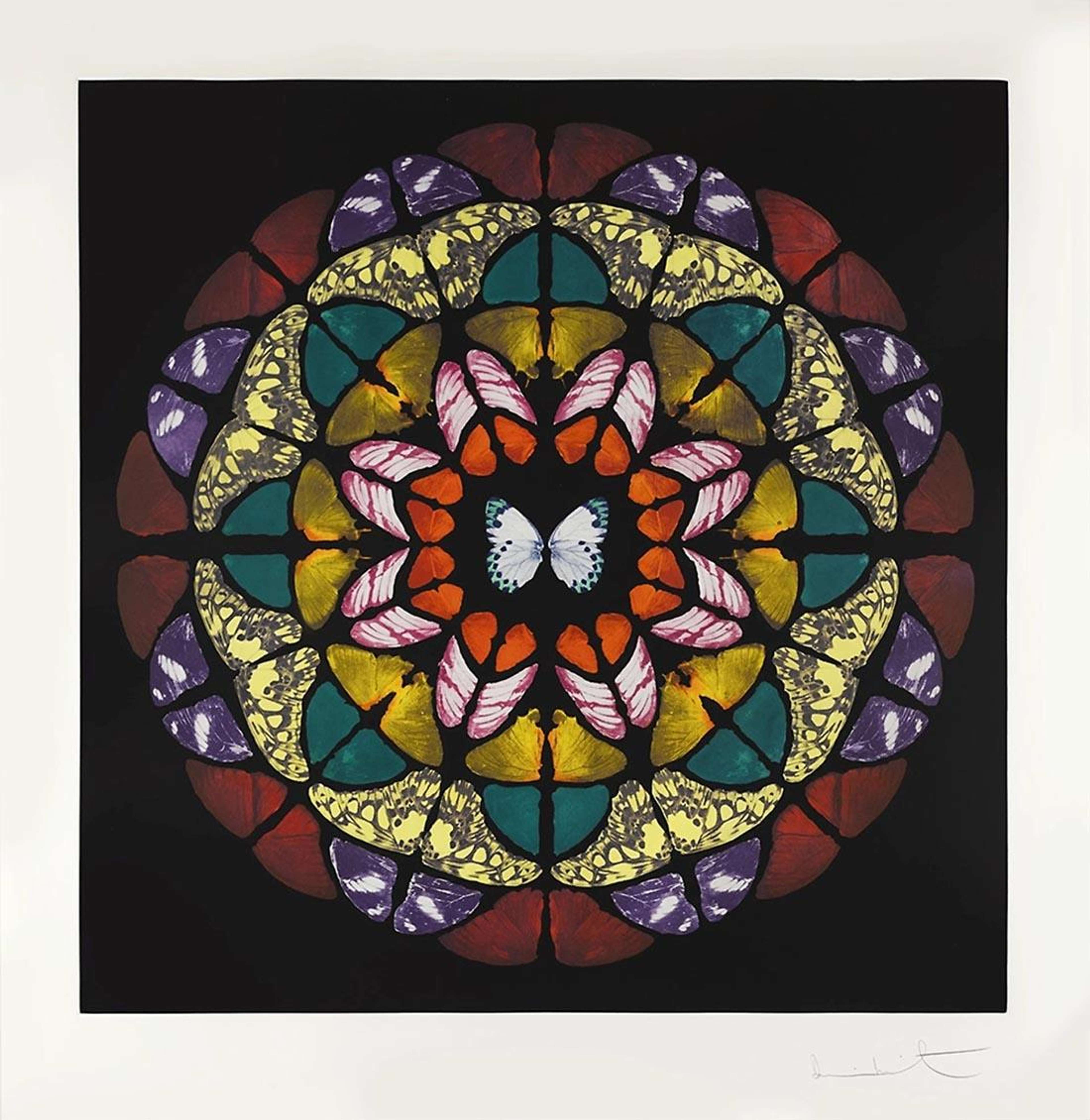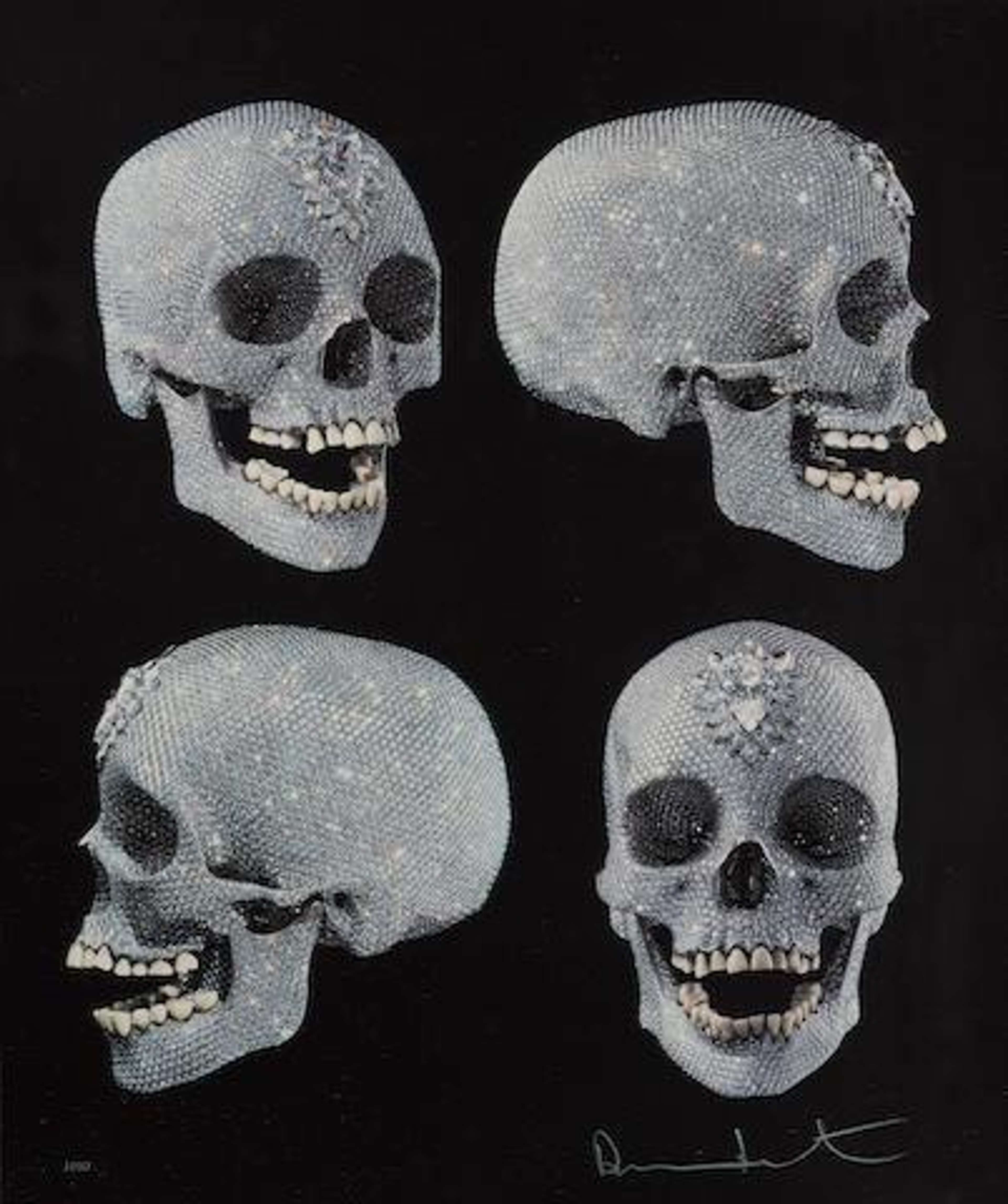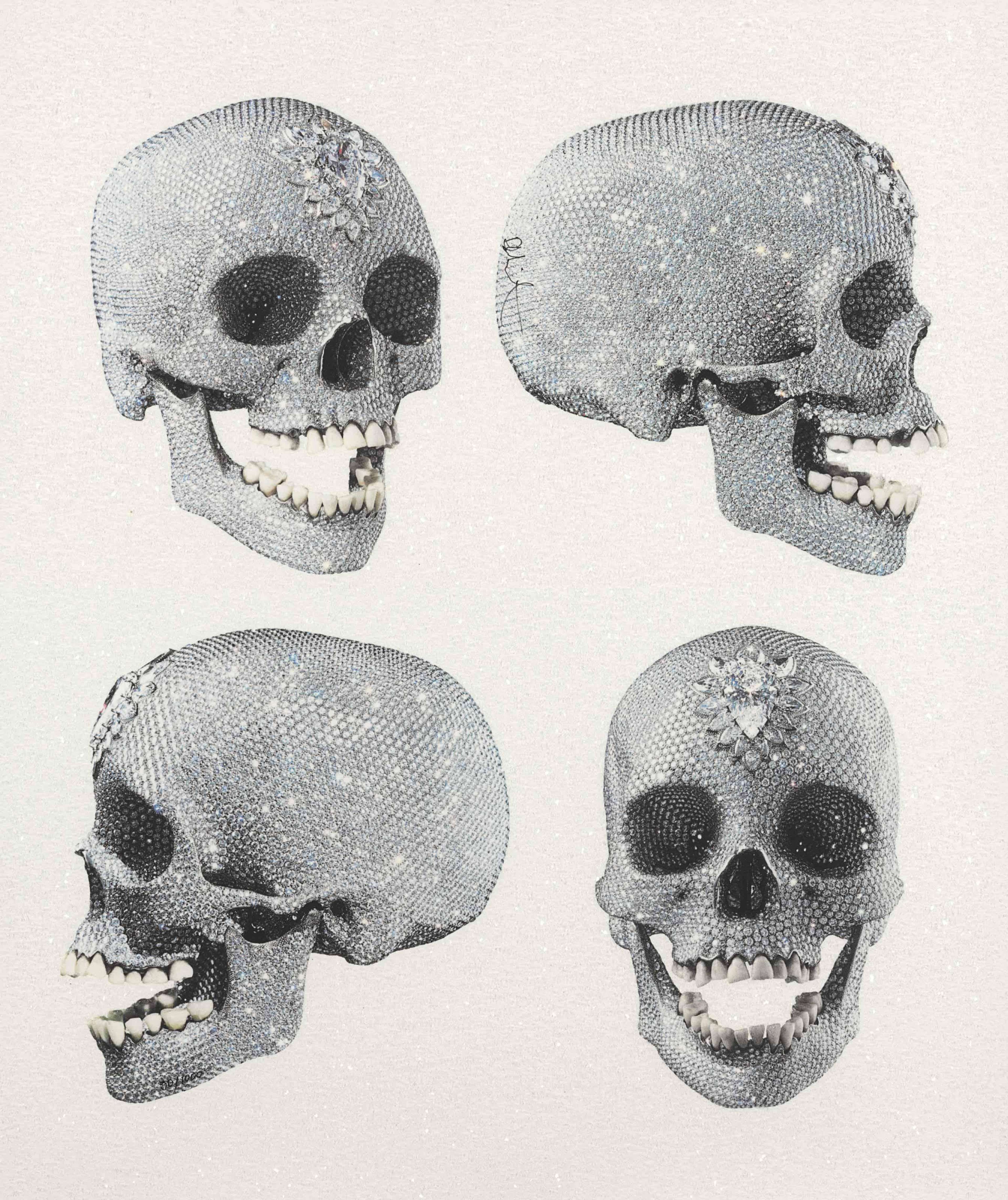 Benzyloxyurea © Damien Hirst 2011
Benzyloxyurea © Damien Hirst 2011
Damien Hirst
673 works
The average value of Damien Hirst's artwork has experienced a 4.5% compound annual growth rate over the last 5 years, with signed limited edition Hirst prints selling for anywhere between £300 and £121,000 at auction in 2024 to date. This increase highlights the lasting allure and worth of his creations. As the leader of the Young British Artists in the 1990s, Hirst is one of the most infamous artists of his generation.
The highest price ever paid for a Damien Hirst artwork was achieved in September 2018, when The Golden Calf, one of the artist's sculptural works suspending animals in formaldehyde solution containing a bull with solid 18-carat hoofs, horns and a golden disc on its head, sold for £10.3M at Sotheby’s.
Hirst's enduring popularity and influence make him a highly sought-after artist in the secondary market. His prints maintain a consistently high value, demonstrating their continued appeal to collectors and art enthusiasts alike.
£10.3M for The Golden Calf
Animals suspended in formaldehyde solution are among Hirst’s best-known early works and the artist offered a small menagerie of pickled creatures in his auction with Sotheby’s, Damien Hirst – Beautiful Inside My Head Forever (Evening Sale) on 15 September 2018 in London.
The star lot of the night was a bull with solid 18-carat hoofs, horns and a golden disc on its head – a nod to the false idol that enraged Moses in the Biblical story. Sold for £10,345,250, it is Hirst’s most expensive work in pounds (in dollars, it fetched US$14,400,000), but The Golden Calf did not exceed its £8,000,000-12,000,000 estimate and was, perhaps, not the sacred cow Sotheby’s had hoped for.
£9.7M for Lullaby Spring
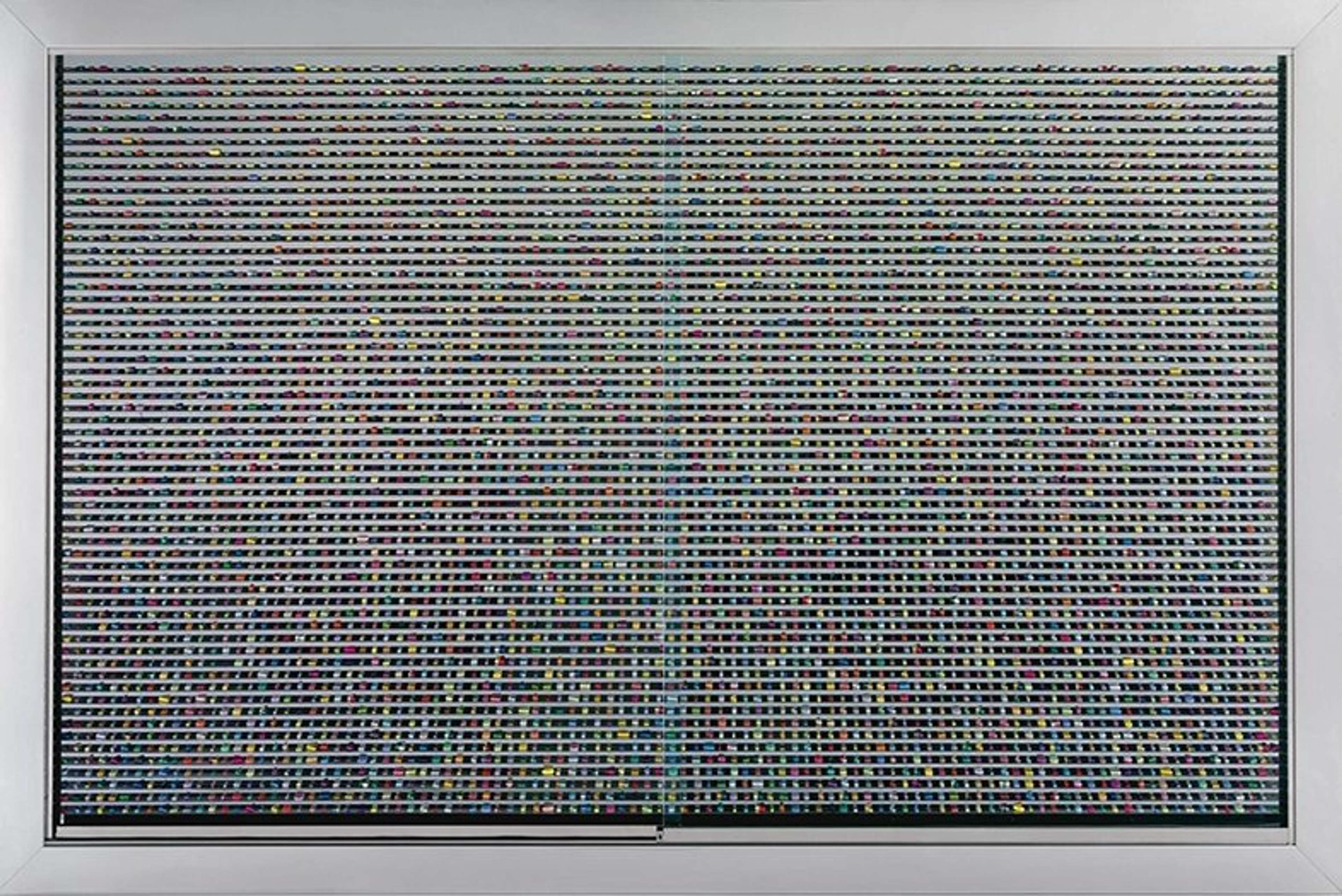 image © Sotheby's / Lullaby Spring © Damien Hirst 2002
image © Sotheby's / Lullaby Spring © Damien Hirst 2002Considered Hirst‘s most expensive work for its value in dollars (US$19,200,000 million), Lullaby Spring – a steel and glass cabinet holding 6,136 individually painted pills – achieved over three times its £3,000,000-4,000,000 estimate when it sold at Sotheby’s Contemporary Evening Auction in London on 21 June 2007. At £9,600,000, it set a new auction record price for Hirst and established him as Europe’s most expensive living artist at the time.
Lullaby Spring is one in a series of four pill cabinets known as Lullaby, The Seasons. Christie’s had sold Lullaby Winter in their New York auction in May 2007 for US$7,432,000, or £3,700,000, although the buyer never paid. Just over a month later, Lullaby Spring increased the value of Hirst’s pill cabinets by US$12,000,000 when it was offered at Sotheby’s.
£9.6M for The Kingdom
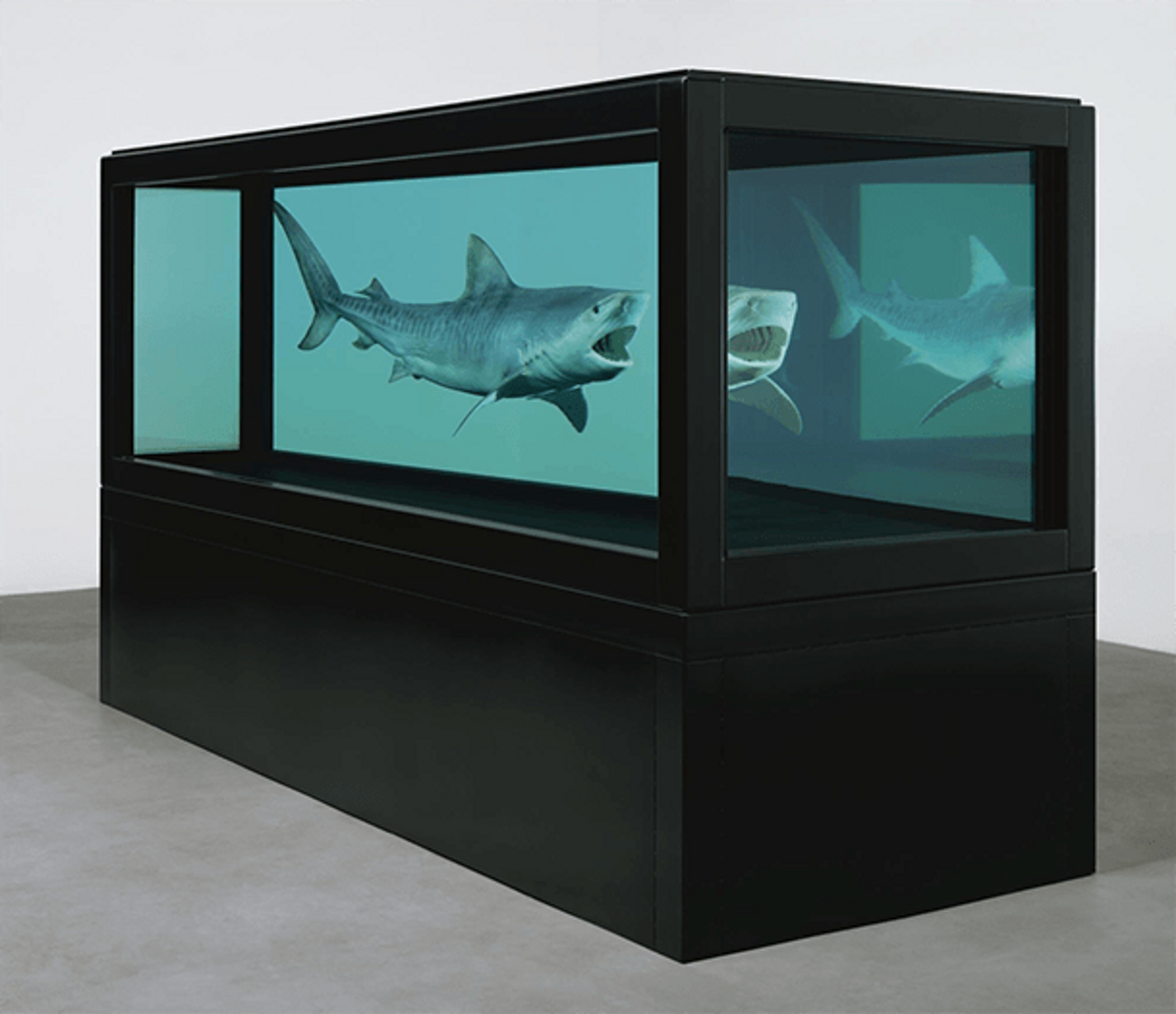 image © Sotheby's / The Kingdom © Damien Hirst 2008
image © Sotheby's / The Kingdom © Damien Hirst 2008The second-highest lot on Sotheby’s dedicated Hirst auction on 15 September 2008, The Kingdom presented a tiger shark in a black vitrine. Hirst’s most famous tiger shark sculpture, The Physical Impossibility of Death In The Mind Of Someone Living, made headlines in 2005 when art collector and patron Charles Saatchi privately sold the work to an American buyer for nearly £7,000,000.
The Kingdom was not as large as The Physical Impossibility, but there was energetic bidding for the chance to own a Hirst shark – at nearly £9,600,000 million, The Kingdom achieved far more than its £4,000,000-6,000,000 estimate.
£5.8M for The Void
(US$5,850,000)
 image © Phillips / The Void © Damien Hirst 2000
image © Phillips / The Void © Damien Hirst 2000Standing over 2m tall and almost 5m wide, The Void is the largest of Hirst’s pill cabinets and also one of the first he ever made. The work was purchased from Gagosian Gallery in 2000 and kept in the same collection for almost two decades before the owner offered it in Phillips’s 20th Century & Contemporary Art Evening Sale in New York on 18 May 2017.
Though the cabinet only scraped the low end of its US$5,000,000-7,000,000 estimate, the result was not a bitter pill to swallow for the auction house – US$5,800,000 million was the highest price paid for Hirst’s art in three years, claimed The Art Newspaper.
£5.2M for Fragments Of Paradise
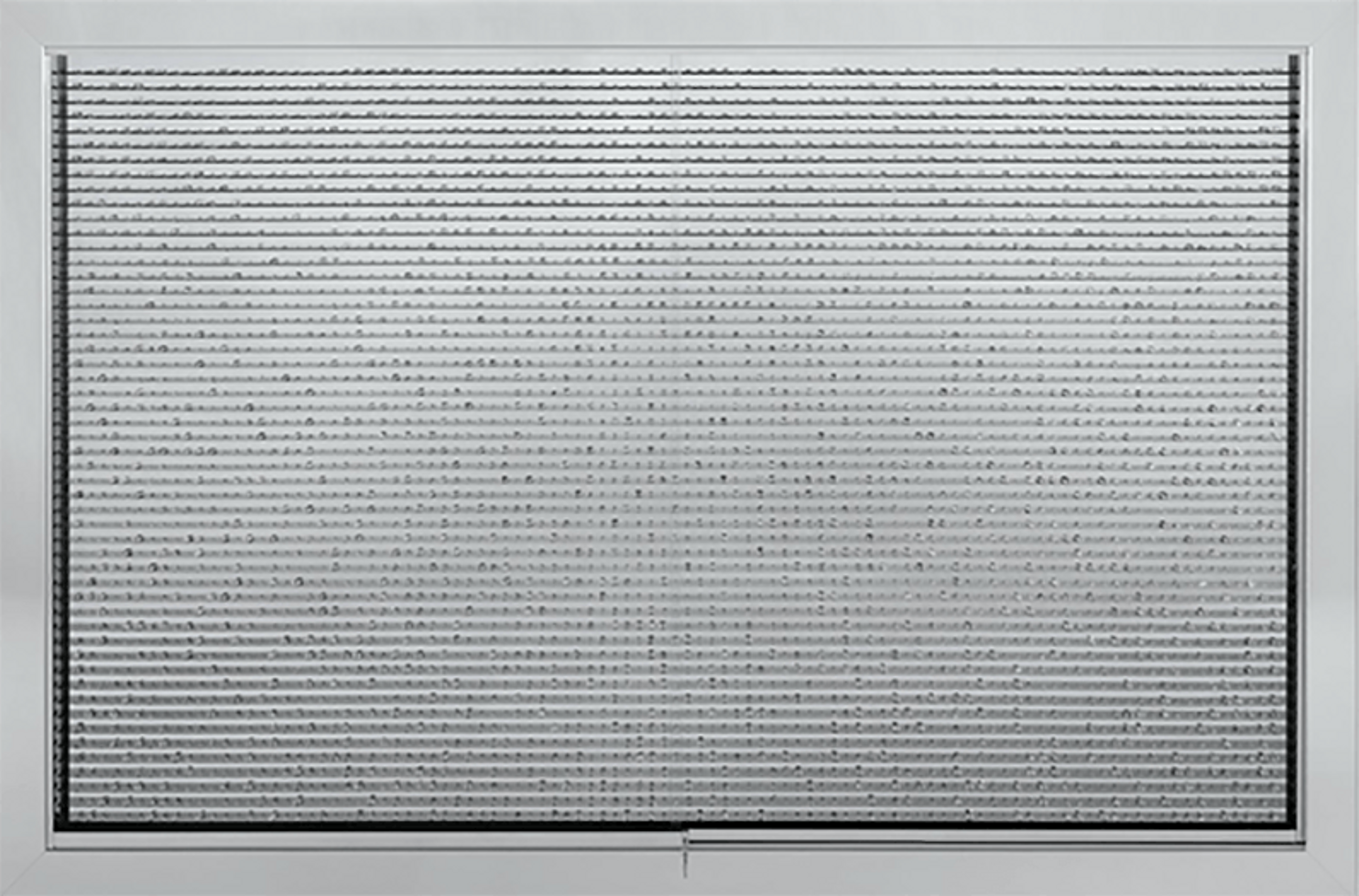 image © Sotheby's / Fragments Of Paradise © Damien Hirst 2008
image © Sotheby's / Fragments Of Paradise © Damien Hirst 2008Another top lot from Sotheby’s dedicated Hirst auction on 15 September 2008, Fragments of Paradise was one of the first in Hirst’s new series of cabinets, this time displaying diamonds instead of pills. Estimated at £1,000,000-1,500,000, the new work went on to achieve five times higher.
“The amazing thing about diamonds is that they take light and throw it back at you,” Hirst had said, adding, “but they have a dark side as well.” Between 2008-11, Hirst made 14 gemstone cabinets displaying diamonds or sapphires, but none have topped Fragments of Paradise on the secondary market.
£4.7M for Eternity
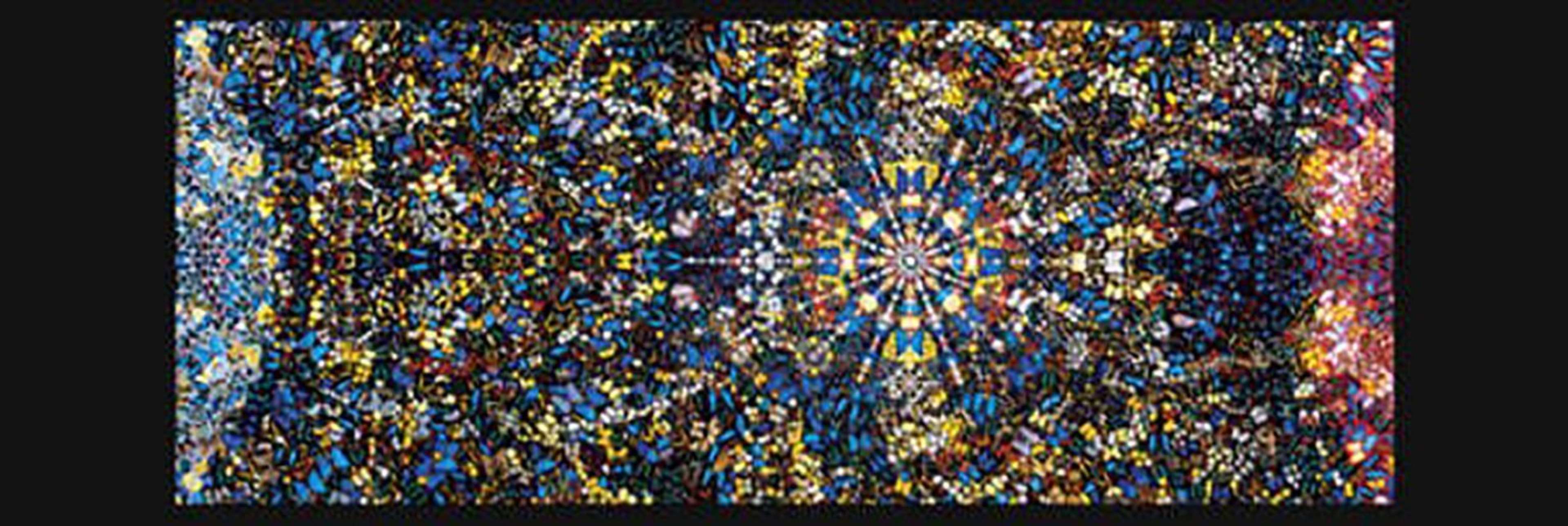 image © Phillips / Eternity © Damien Hirst 2002-04
image © Phillips / Eternity © Damien Hirst 2002-04Eternity, an early work in Hirst’s series of ‘Kaleidoscope’ butterfly-wing paintings, spans 17 feet wide and includes over 2,700 butterflies. Beautiful and morbid, the ‘Kaleidoscope’ butterflies exemplify Hirst’s obsession with life, death and blurring the lines between the two.
Eternity achieved £4,700,000 against an estimate of £2,500,000-3,500,000 when it was offered in Phillips’s Contemporary Art Evening Sale in London on 13 October 2007, becoming the star lot of the night.
£4.5M for Happy Life Blossom
(US$5,609,900)
 Image © Sotheby's / Happy Life Blossom © Damien Hirst 2018
Image © Sotheby's / Happy Life Blossom © Damien Hirst 2018This 2018 diptych was sold for £4.5million at the Now Evening Auction at Sotheby’s in New York on 19 May 2022. Estimated at £1,600,010-2,400,015, Happy Life Blossom is part of Hirst’s most recent series of paintings dubbed the Cherry Blossoms.
“The Cherry Blossoms are about beauty and life and death,” Hirst had informed, “...like Jackson Pollock twisted by love.” Hirst’s blooming and lighthearted series has since progressed to exhibit in Japan - a first for Hirst.
£3.7M for Lullaby Winter
(US$7,432,000)
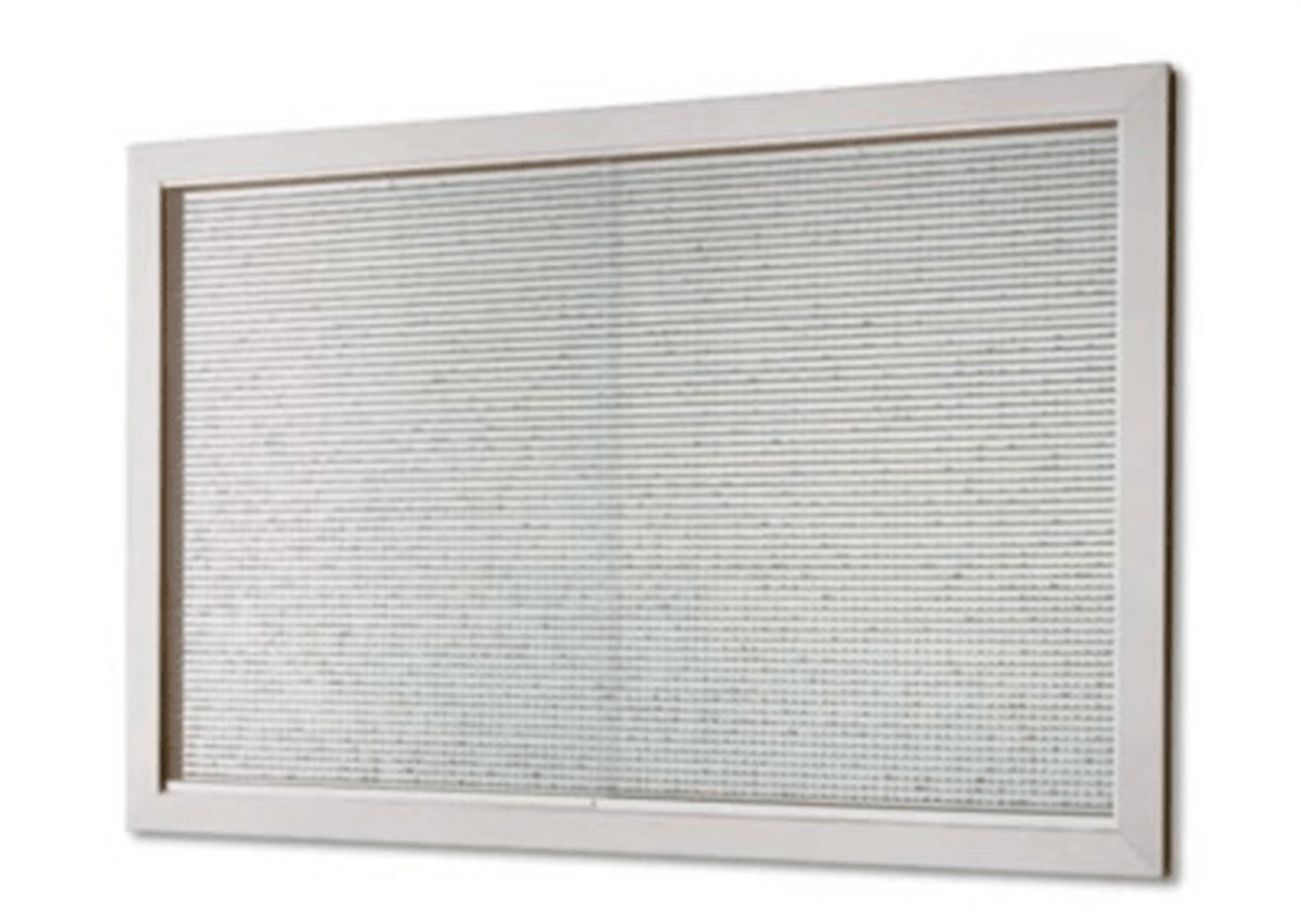 image © Christie's / Lullaby Winter © Damien Hirst 2002
image © Christie's / Lullaby Winter © Damien Hirst 2002Lullaby Winter was the auction ‘record’ that wasn’t. At US$7,400,000 or £3,700,000, Hirst's pill cabinet sold for double its US$2,500,000-$3,500,000 estimate at Christie’s Post-War & Contemporary Art Evening Sale in New York on 16 May 2007 – a new record price for the artist at the time.
But the buyer never paid after the sale and, having guaranteed the work, Christie’s was forced to keep Lullaby Winter themselves. Almost eight years later, Christie’s offered Lullaby Winter in their Post-War & Contemporary Art Evening Auction on 11 February 2015. There, the artwork sold for £3,000,000.
£3.6M for Where There's A Will, There's A Way
(US$7,150,000)
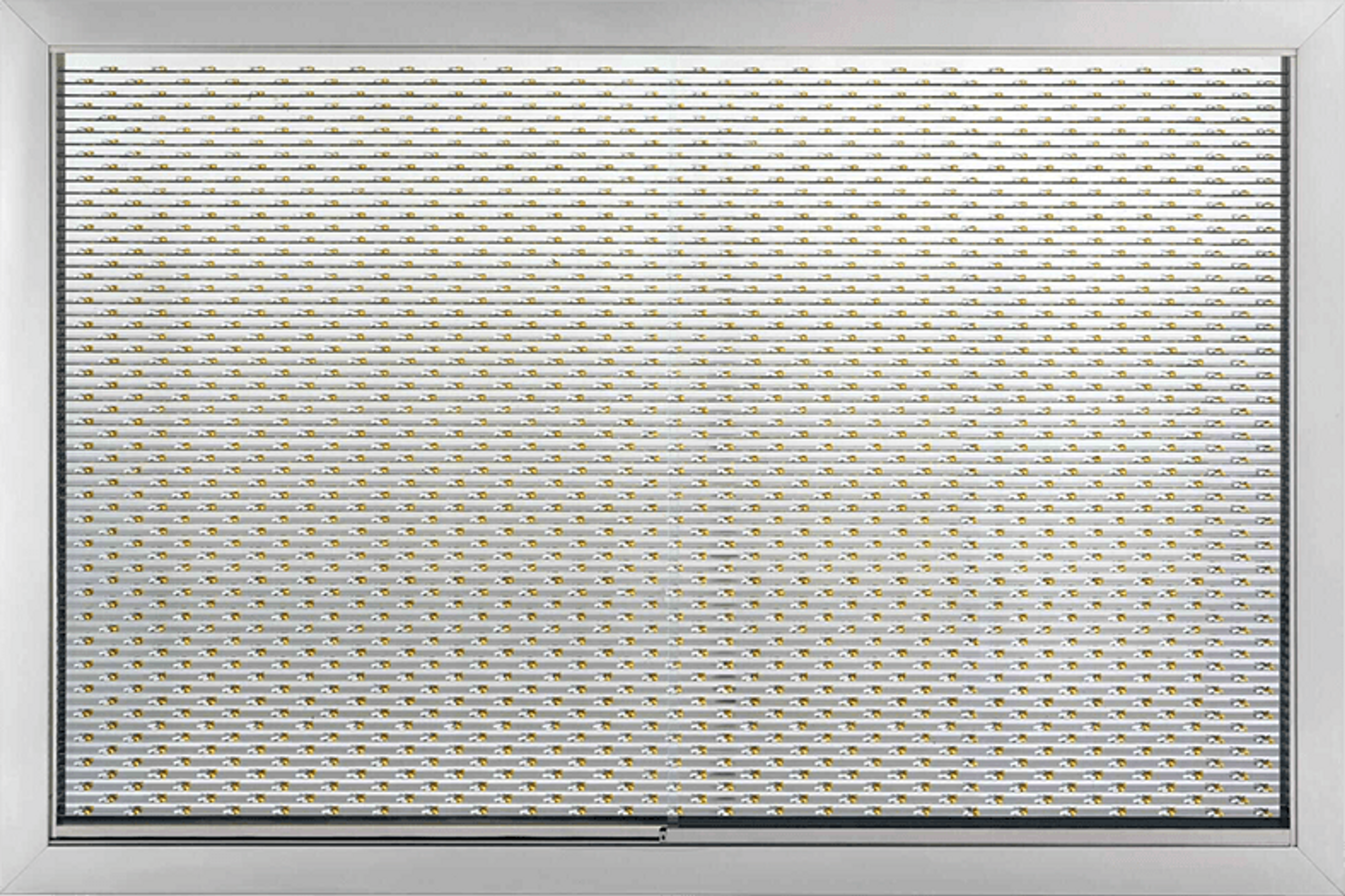 image © Sotheby's / Where There’s A Will, There’s A Way © Damien Hirst 2007
image © Sotheby's / Where There’s A Will, There’s A Way © Damien Hirst 2007On 14 February 2008, Sotheby’s teamed up with U2 lead singer Bono and Damien Hirst to launch the auction house’s first (RED) charity auction. Curated by Hirst, the evening sale offered 72 lots themed around the colour red – by the end of the night, 17 new auction records were set and US$42,000,000 was raised to fight against AIDS. The top lot was Hirst’s Where There’s A Will, There’s A Way, one of seven works the artist donated to the sale, which achieved US$7,100,000.
£3.2M for Away From The Flock
(US$4,412,500)
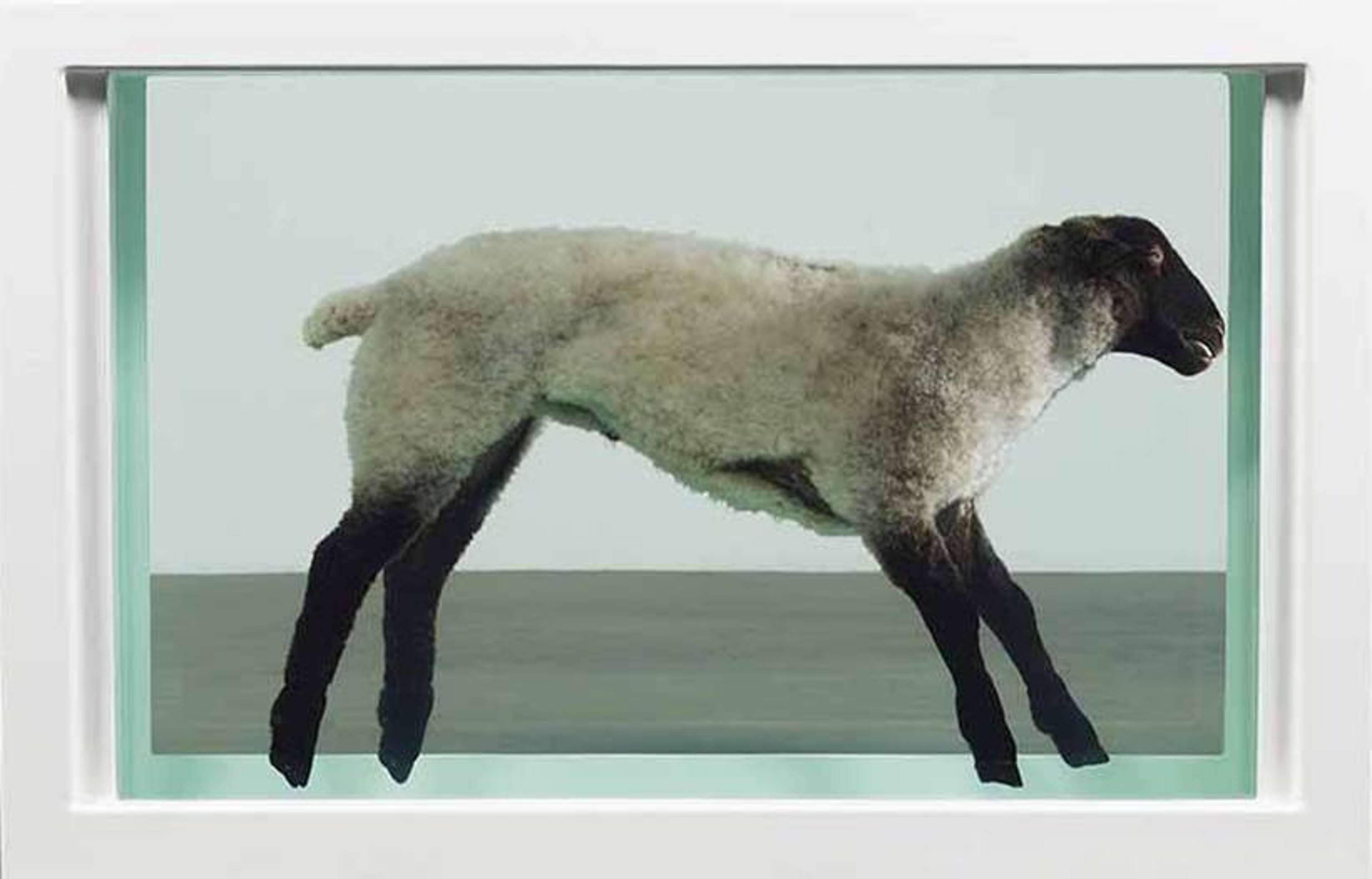 Image © Christie's / Away From The Flock © Damien Hirst 1994
Image © Christie's / Away From The Flock © Damien Hirst 1994This important lamb sculpture from 1994, one of Hirst’s first formaldehyde artworks, was snapped up after 30 seconds of bidding at Christie’s Post-War and Contemporary Art Evening Sale in New York on 17 May 2018. Four editions of Away from the Flock were made in 1994 – other versions are now in the collection of Tate Britain and in The Broad, Los Angeles.
£3.0M for Here Today, Gone Tomorrow
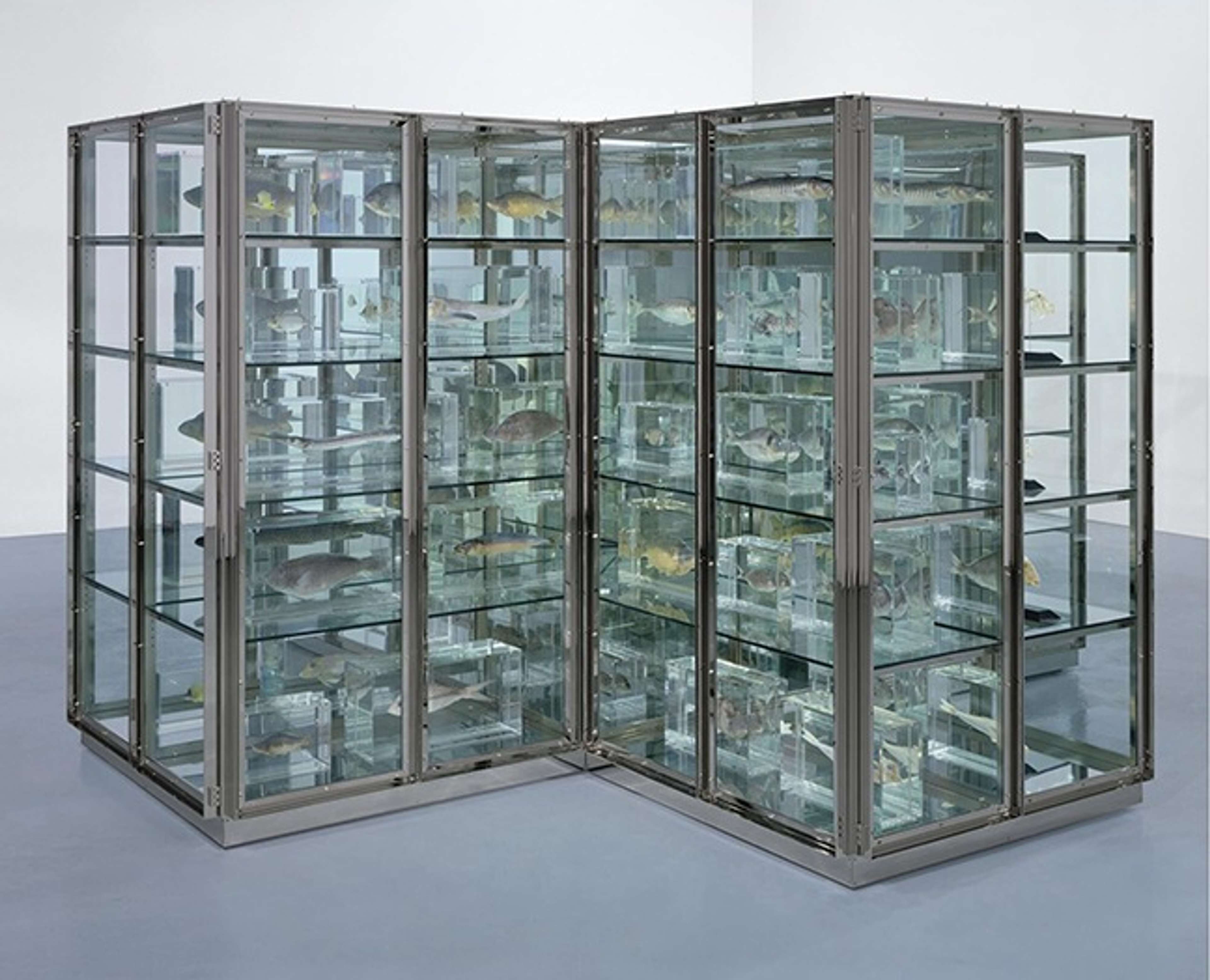 image © Sotheby's / Here Today, Gone Tomorrow © Damien Hirst 2008
image © Sotheby's / Here Today, Gone Tomorrow © Damien Hirst 2008Another highlight from Sotheby’s dedicated Hirst auction on 15 September 2008, Here Today, Gone Tomorrow displays fish preserved in formaldehyde alongside fish skeletons – a conversation between life and death. The artwork was exhibited at Ukraine’s Pinchuk Art Centre group show, Fragile State, from 2017-18.


